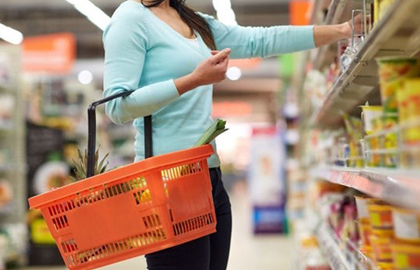
How the Household Spending Pie changed during Covid-19 lockdown?
These have been drastic times and the Indian households have taken drastic measures to comply with the national lockdown. A lot of ‘the way of life’ has changed and we are forced to organize ourselves under some severe constraints; despite that we seemed to have fared better than some of the countries in Europe and the US. Every new day alters the statistics, the scale of pandemic and hence we can’t let our guards down as yet.
During my new approach of ‘battle-like organized shopping’ it occurred to me that there would be a significant shift in our spending patterns over the 3 weeks of national lockdown. We are certainly buying more food off the shelves of grocery stores. This is clearly attributed to the zero-spending on eating out, so all the food is getting prepared at home. I remember reading a study which shared statistics like 60 percent of Indian millennials make more than three visits a month for eating out. A similar tracking data in the UK reports that only 60 percent of the food requirements is bought from the supermarkets or grocery stores while the rest is served through restaurants, take-aways, deliveries etc. The sale for food items in these supermarkets or grocery stores in UK have nearly doubled. Good-old healthy home food is the only option much to the chagrin of kids & youngsters who had streetfood, fastfood and packaged food dominating their diets.
Like eating-out the entertaining or therapeutic activity of shopping for clothes & accessories, shoes, bags, make-up & cosmetics has also ceased to exist; the retail segment has come to a stall (no pun intended). Millennials tend to make about 5 visits in a month to a mall or shopping center for buying and almost 4 visits for non-shopping activities. In a way it is showing us a mirror whether we really need that 8th pair of jeans or 16th pair of shoes or the top from latest collection. Most of my days are spent in my house clothes or lounge wear if I need to feel hip about it. And I also know that my washing machine runs fewer cycles in a day with no Office & School Uniforms to wash. Indians were just getting into the groove of online shopping and the joy of ordering & returning at will under ‘no questions asked’ policy. There are no more deliveries, as the online marketplaces have declared your ‘chosen products’ as non-essential.
The festivals of Gudi Padwa and Ugadi came and went without a whimper, there was no purchases of Gold, Cars/two wheelers, consumer durables. While the gold purchase had a certain contextual relevance and unlikely to recur at a later date, the decision of buying the car or a two-wheeler could be a deferred decision. A lot depends on the economic impact of this lockdown and that bears take some time off allowing a buoyant bull run.
No longer is taking the kids to the mall for a movie or play-zone a means of keeping them entertained, so it about reading books (real ones) or even online, playing board games and sometimes gaming unless Netflix and Amazon Prime is dominating the living room. So, subscriptions for streaming services are certainly going up along with broadband services.
The two big discretionary spending avenues that have just evaporated are Event/Entertainment and Travel & Tourism. Even though the timeframe is too short to ascertain the impact, since many households may have only deferred their vacation plans, there is likely to fewer tourists visiting Hong Kong, Italy, London, Spain, Switzerland, Germany and even the US. Several International events including sporting events like Olympics, IPL have to be rescheduled for another time which may not be in the next 3 or 6 months.
While the prevailing situation does not have to be the ‘new normal’, it does make us wonder how have we readjusted our spending. What has worked for the good even in the times of severe restrictions? Have we been able to bring in degree of discipline to our consumerist latitude? We know for sure that Earth is a happier planet, air pollution in the cities are at lowest levels, rivers are cleaner, discharge of pollutants into the sea has reduced, animals and birds have reclaimed some part of nature without being threatened.
Many trends will emerge in the way we live & work as we survive the pandemic, but for now I need to log on to one of the many zoom video-call schedules that have popped up.
During my new approach of ‘battle-like organized shopping’ it occurred to me that there would be a significant shift in our spending patterns over the 3 weeks of national lockdown. We are certainly buying more food off the shelves of grocery stores. This is clearly attributed to the zero-spending on eating out, so all the food is getting prepared at home. I remember reading a study which shared statistics like 60 percent of Indian millennials make more than three visits a month for eating out. A similar tracking data in the UK reports that only 60 percent of the food requirements is bought from the supermarkets or grocery stores while the rest is served through restaurants, take-aways, deliveries etc. The sale for food items in these supermarkets or grocery stores in UK have nearly doubled. Good-old healthy home food is the only option much to the chagrin of kids & youngsters who had streetfood, fastfood and packaged food dominating their diets.
Like eating-out the entertaining or therapeutic activity of shopping for clothes & accessories, shoes, bags, make-up & cosmetics has also ceased to exist; the retail segment has come to a stall (no pun intended). Millennials tend to make about 5 visits in a month to a mall or shopping center for buying and almost 4 visits for non-shopping activities. In a way it is showing us a mirror whether we really need that 8th pair of jeans or 16th pair of shoes or the top from latest collection. Most of my days are spent in my house clothes or lounge wear if I need to feel hip about it. And I also know that my washing machine runs fewer cycles in a day with no Office & School Uniforms to wash. Indians were just getting into the groove of online shopping and the joy of ordering & returning at will under ‘no questions asked’ policy. There are no more deliveries, as the online marketplaces have declared your ‘chosen products’ as non-essential.
The festivals of Gudi Padwa and Ugadi came and went without a whimper, there was no purchases of Gold, Cars/two wheelers, consumer durables. While the gold purchase had a certain contextual relevance and unlikely to recur at a later date, the decision of buying the car or a two-wheeler could be a deferred decision. A lot depends on the economic impact of this lockdown and that bears take some time off allowing a buoyant bull run.
No longer is taking the kids to the mall for a movie or play-zone a means of keeping them entertained, so it about reading books (real ones) or even online, playing board games and sometimes gaming unless Netflix and Amazon Prime is dominating the living room. So, subscriptions for streaming services are certainly going up along with broadband services.
The two big discretionary spending avenues that have just evaporated are Event/Entertainment and Travel & Tourism. Even though the timeframe is too short to ascertain the impact, since many households may have only deferred their vacation plans, there is likely to fewer tourists visiting Hong Kong, Italy, London, Spain, Switzerland, Germany and even the US. Several International events including sporting events like Olympics, IPL have to be rescheduled for another time which may not be in the next 3 or 6 months.
While the prevailing situation does not have to be the ‘new normal’, it does make us wonder how have we readjusted our spending. What has worked for the good even in the times of severe restrictions? Have we been able to bring in degree of discipline to our consumerist latitude? We know for sure that Earth is a happier planet, air pollution in the cities are at lowest levels, rivers are cleaner, discharge of pollutants into the sea has reduced, animals and birds have reclaimed some part of nature without being threatened.
Many trends will emerge in the way we live & work as we survive the pandemic, but for now I need to log on to one of the many zoom video-call schedules that have popped up.
